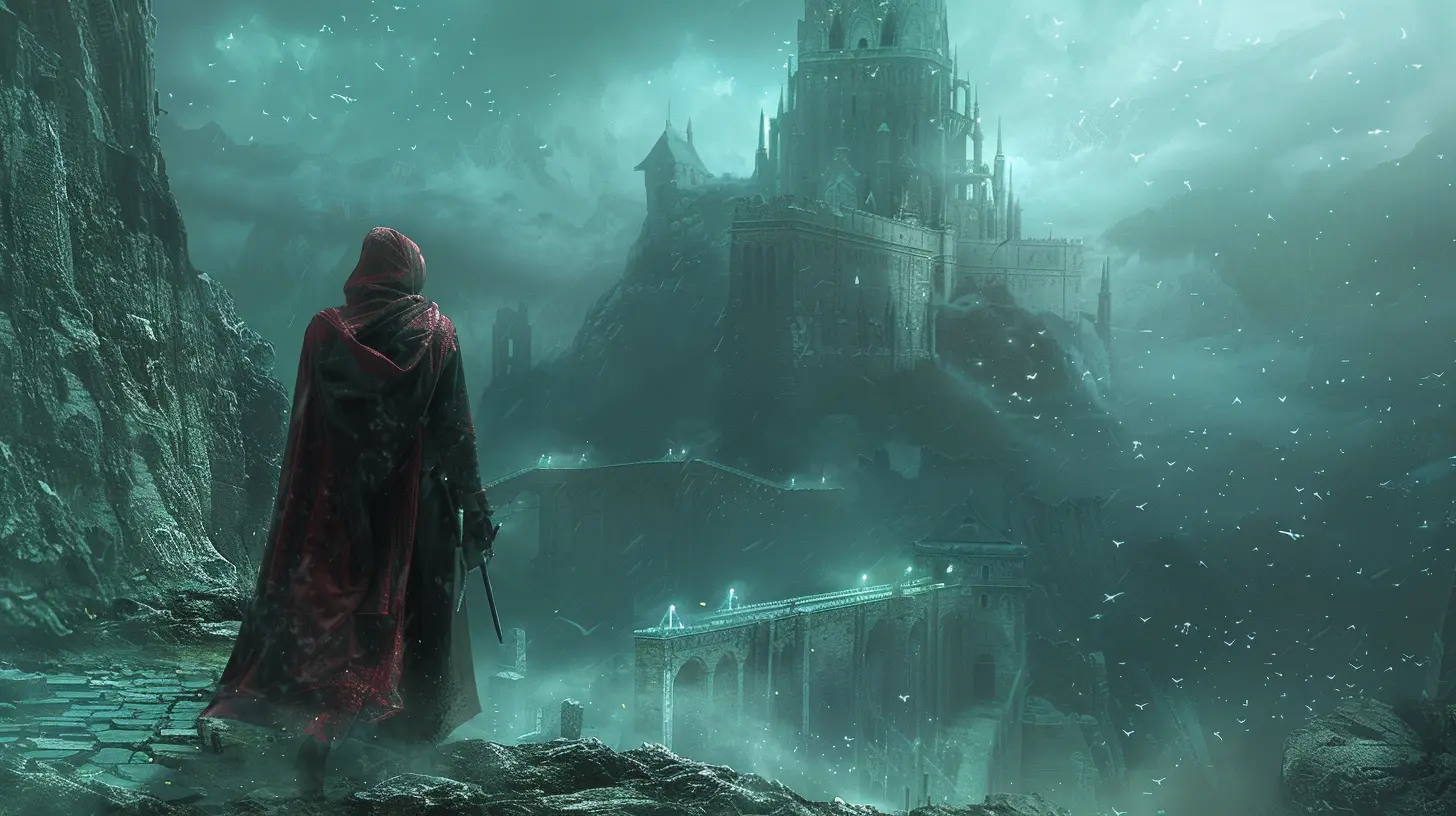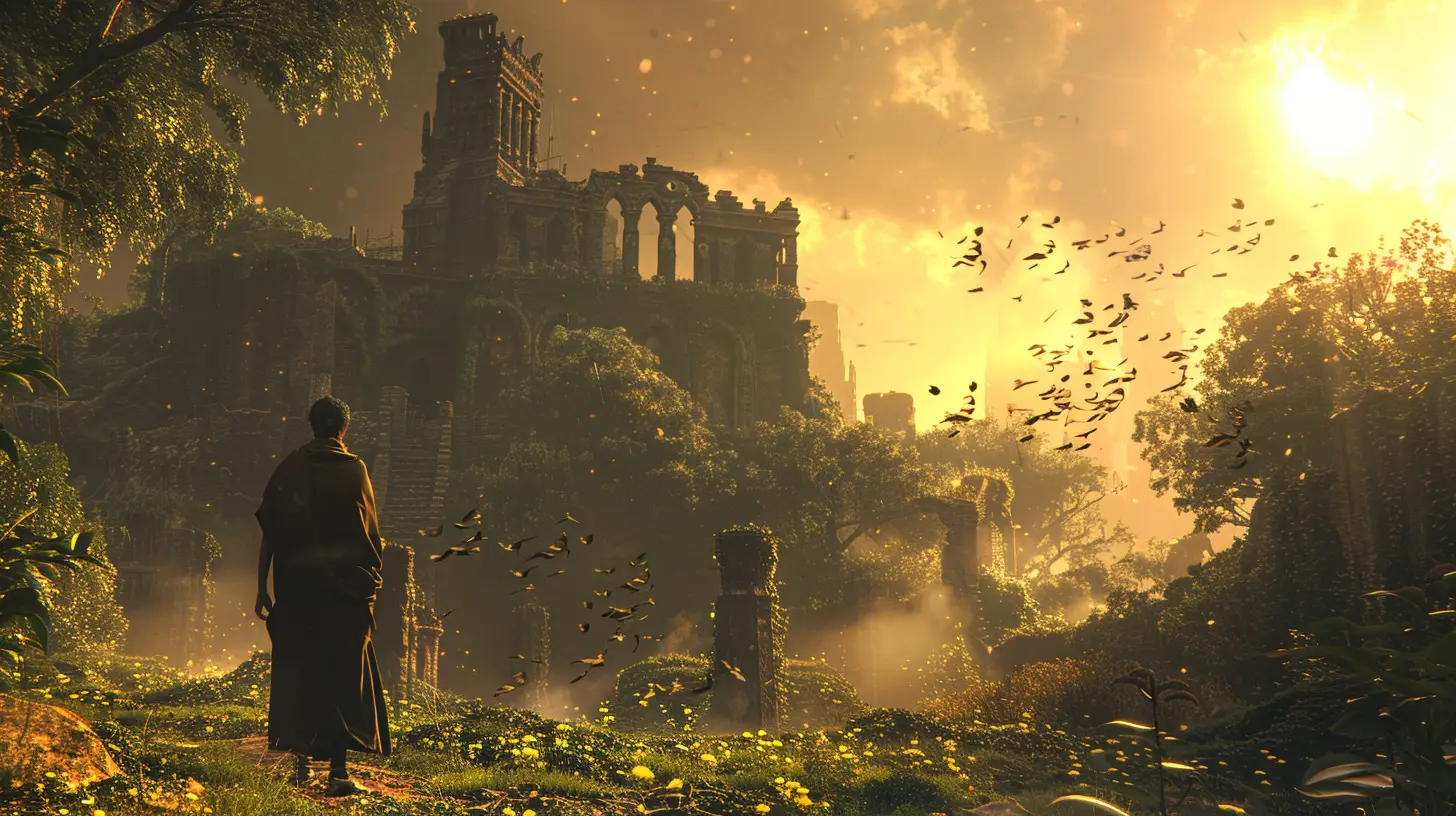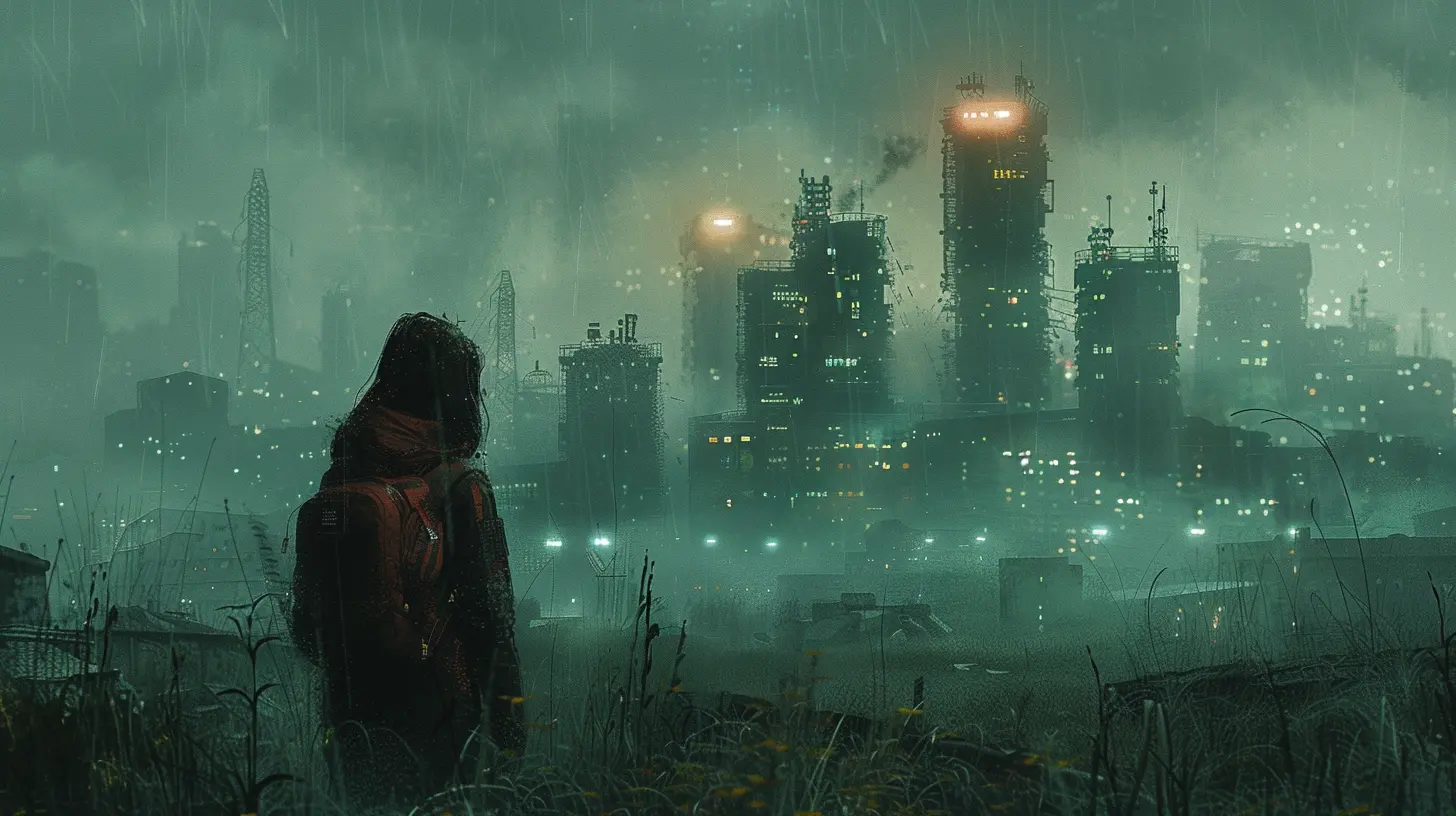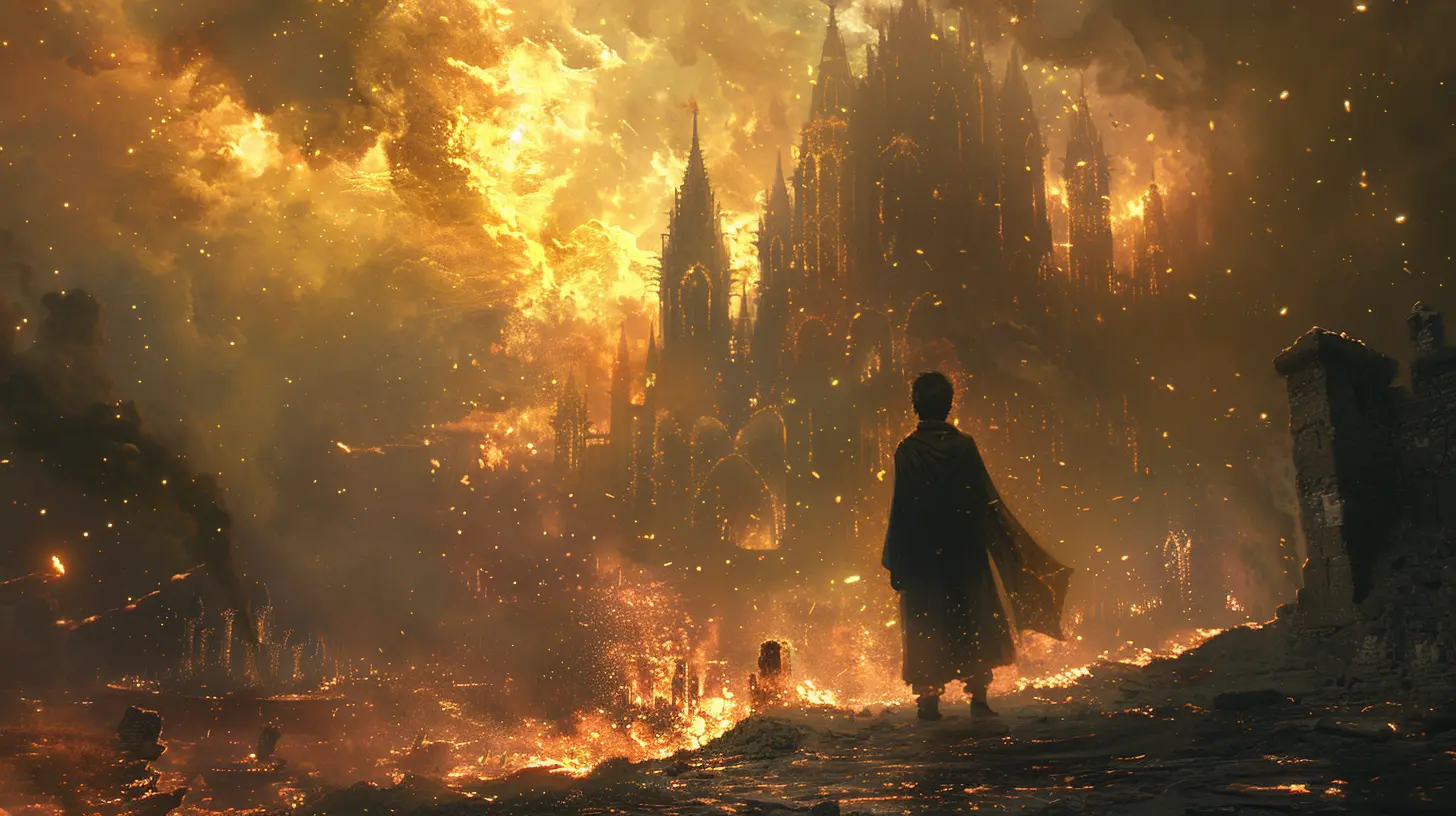The Role of Player Identity in Shaping Game Stories
26 August 2025
Have you ever stopped mid-quest in a game, paused at a cliffside overlook, and thought—"Who am I in this world?" Not you in real life. You, the digital hero, rogue, mage, or space pirate. The person behind the controller is one thing, but the character on-screen? That’s a reflection, a projection, and in many ways, a reinvention. Welcome to the poetic dance between player identity and game storytelling—a dance more intricate than a dragon’s waltz and as personal as your first crush.
In this article, we’re diving deep—sword first—into how our identities as players shape the stories we experience in games. From the mighty realms of open-world RPGs to the pixel-perfect puzzles of indies, we’ll uncover how developers design narratives for us, and more importantly, how we bend those narratives around ourselves.
What Is Player Identity, Anyway?
Let's start simple. Think of player identity as the mask you wear when you enter a digital world. Sometimes that mask looks a lot like you. Other times, it's a total transformation—gender-swapped, morally flipped, or wildly alien. It’s how you decide to play, the choices you make, and the values you imprint onto your character.Are you a take-no-prisoners warrior in Skyrim? A peace-seeking diplomat in Mass Effect? Or a kleptomaniac raccoon in Animal Crossing?
Player identity isn’t just who you are—it’s who you choose to be when no one’s watching and no real-world consequences exist. That freedom? That’s what fuels unforgettable stories.
How Player Identity Breathes Life Into Game Worlds
Most games start with the same spark: a script, a storyline, a goal. But once you, dear player, step into the scene, the story stirs awake. Your identity acts like oxygen to its flame. Suddenly, the narrative isn’t just about what happens—it’s about who it’s happening to.1. Narrative Customization: Your Story, Your Rules
Remember launching into your first character creation screen? The sliders, the traits, the backstory options? That's more than just cosmetics. That’s the start of storytelling co-creation.Games like Dragon Age, Cyberpunk 2077, and Elden Ring give you a palette and let you paint. You're not just a part of the world—you help sculpt it. The dialect between your character’s background and the game’s world-building becomes a duet that echoes throughout your journey.
And even if a game offers a fixed protagonist (like Joel in The Last of Us or Kratos in God of War), your interpretation of their actions—how you justify them, relate to them, or resist them—adds layers of meaning.
2. Morality Systems: Reflections in Digital Mirrors
Games with morality meters or branching narratives put your ethics under a spotlight.Will you save or sacrifice the villagers in Fable? Will you romance Liara or Miranda in Mass Effect? Every choice becomes a fingerprint of your digital soul.
But here’s the twist: most players don’t play purely as themselves. Some explore "what ifs." What if I was a villain? What if I abandoned mercy? Games become playgrounds for identity experimentation. You can be your darkest self, your noblest self, or someone in between.
Player Psychology and Story Impact
Identity doesn’t just shape where a story goes. It changes how it feels.Ever cried at a companion’s death in a game? Felt guilt after choosing the “bad” option? That’s the emotional weight of invested identity. You weren’t just controlling a character—you were that character, even if just for a few hours.
Here's the kicker—your experience might be completely different from another player’s, even in the same game. Same title, different souls playing it. That’s storytelling magic.
Agency: The Illusion That Shapes Reality
It’s easy to think that we’re the authors of our journeys, but in truth, games still set boundaries. They offer the illusion of choice—limited paths disguised as infinite options. But that illusion? It’s powerful.Because even when the road forks in only two directions, the mere fact that you chose your path makes the experience feel unique. That sense of agency—however scripted—cements ownership of the story. And when you own a tale, you remember it forever.
Multiplayer & Shared Identity: When Your Avatar Meets Others
In single-player games, your identity is your own little universe. But toss other players into the mix—say, in MMOs, co-op adventures, or online survival games—and things get interesting.You start curating how you look, how you behave, how others perceive you.
Are you the helpful healer who always revives teammates or the sneaky saboteur who raids at night?
Social dynamics influence your choices and, in turn, reshape the narrative. The story becomes less about a central plot and more about shared memories:
- That raid gone wrong because everyone danced at the boss fight.
- That betrayal in a survival game when a trusted ally looted your stash.
- That kiss in Final Fantasy XIV’s moonlit gardens.
When identity collides with community, emergent storytelling explodes.
Representation Matters: Seeing Yourself in the Game
Let’s talk about the big one—representation. When games let players create characters that reflect their race, gender identity, sexuality, or body type, they don’t just offer inclusion. They open the floodgates for deeper identification and emotional engagement.For players who’ve never seen themselves in media before, being able to walk through a world where they exist—not as a token, but as a central hero—can be life-changing.
From Ellie in The Last of Us Part II to the vast character customization in Baldur’s Gate 3, the industry is slowly catching on: diversity in games isn’t just good—it’s essential for authentic, player-shaped storytelling.
The Replay Factor: New Identity, New Journey
Let’s be real. Most of us replay games not just for achievements—but to try being someone else.First run? Paragon all the way.
Second run? Let’s see what chaos the Renegade life brings.
This desire to start over, to live again, proves one thing: identity isn’t fixed in games. It's fluid, evolving, and endlessly intriguing. Each playthrough is like choosing a new mask and stepping onto a fresh stage, under the same spotlight, but playing a different part.
Case Studies: Where Identity Takes Center Stage
🎮 The Witcher 3: Geralt with a Twist
Sure, you play as Geralt. But how you react to Ciri, how you treat Yennefer or Triss, whether you chase gold or glory—that’s on you. CD Projekt Red played a brilliant card. They gave you a defined character but left enough room for your soul to seep in.🎮 Undertale: The Emotional Wrecking Ball
A pixelated masterpiece where your choices shape not just the story, but the heart of the game itself. Finish a pacifist run? You’ll see your actions reflected in every character’s words. Go genocidal? The game haunts you. Literally. Your identity—and the choices it spawns—become the story’s moral compass.🎮 Telltale’s The Walking Dead: Clementine Grows With You
Watching a young girl evolve over seasons, shaped by the identity of your previous protagonist, Lee, tugs at emotional roots. You’re not just protecting Clementine—you’re molding her. Your identity becomes a legacy.Looking Ahead: The Future of Player-Driven Stories
With AI-powered NPCs, procedural storytelling, and ever-deepening customization, the line between player and story continues to blur. We’re heading toward worlds where no two playthroughs will ever be the same. Your character’s voice, morals, background—it might all shape quests dynamically, in real-time.Imagine a game where your personality test at the start rewires the story structure. Where how you talk to NPCs determines their dialects back. Where your choices aren’t just tracked but remembered and referenced 50 hours later.
We’re almost there. The future is personal, handcrafted by the player, for the player.
Why It Matters
So why does all this—player identity and storytelling—even matter?Because games aren’t just games anymore. They’re narratives we live inside. They’re mirrors, masks, and dreams all rolled into one. They’re therapy, escape, discovery, and connection. When a game lets us be ourselves—or lets us explore who we could be—it becomes infinitely more than entertainment. It becomes art.
And the most beautiful thing about art? It reflects its maker.
In this case, that’s you.
Final Thoughts
The stories that stay with us from games aren’t just well-written. They’re well-lived. Through the identities we choose, tweak, and wear like armor, we breathe life into pixels and give gravity to decision trees.So next time you fire up a game, ask yourself: Who do I want to be today? Because in that moment, the story is no longer just the developer’s.
It’s yours.
all images in this post were generated using AI tools
Category:
Game StorylinesAuthor:

Tayla Warner
Discussion
rate this article
1 comments
Solstice Newton
Player identity significantly influences the narrative experience in games, shaping decisions and emotional connections. By allowing players to embody diverse characters and backgrounds, developers create immersive stories that resonate on a personal level, enhancing engagement and making each gameplay unique and meaningful.
August 27, 2025 at 3:07 PM

Tayla Warner
Absolutely! Player identity enriches narratives by fostering deeper emotional connections and personal investment, making each gameplay experience uniquely impactful.

